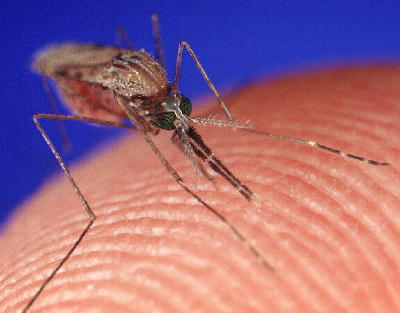
Hot weather and stagnant water can be ideal conditions in which mosquitoes flourish. And while most mosquitoes are simply an annoyance, some may carry West Nile infections. Texas Department of State Health Services (DSHS) officials say that the best way to protect yourself from mosquito-borne illnesses is to use an insect repellent every time you are outdoors. Look for insect repellents that contain DEET, picaridin or oil of lemon eucalyptus. Read and follow the label instructions.
West Nile and other mosquito-borne infections can cause potentially serious illnesses. West Nile infection is caused by the bite of an infected mosquito that gets the virus when feeding on infected birds and other wild animals. It is not spread from person to person through casual contact such as touching or kissing.
DSHS offers the following additional recommendations:
- Drain standing water from around your home. Empty cans, buckets, tires, rain gutters, tree holes and saucers under potted plants regularly. Change the water in pet bowls, bird baths and wading pools several times a week. It only takes a thimble of water for mosquitoes to breed.
- Limit the amount of time outdoors between dusk and dawn when those mosquitoes likely to carry infections are most active.
- Dress appropriately when outside in mosquito-infested areas. Cover as much skin as possible to reduce exposure to mosquito bites and use a recommended repellent on exposed skin. Mosquitoes may bite through thin clothing, so spray clothes with repellent containing either DEET or permethrin for extra protection. Be sure to follow label directions. Do not spray permethrin onto skin.
- Mosquito-proof your house. Make sure door seals are secure and door and window screens are intact.
Symptoms of the milder forms of West Nile illness include fever, severe headache, muscle and bone aches, nausea and drowsiness. Symptoms of more serious neuroinvasive West Nile include a stiff neck, visual problems, altered taste, body tremors, mental confusion, memory loss and seizures. Symptoms usually appear from 3 to 14 days after a person is bitten.
People most at risk of developing symptoms include those older than 50 and those with compromised immune systems. Contact your local health care provider if you suspect West Nile illness. There is no specific treatment for West Nile infections. Other mosquito-born illnesses in the Panhandle and South Plains include St. Louis encephalitis and western equine encephalitis.